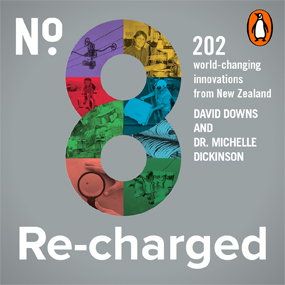Child Poverty ‘Stains’ NZ’s Human Rights Record Says Amnesty
Amnesty International blasted New Zealand for its high rate of child poverty, and its poor treatment of female domestic violence victims and asylum seekers. The condemnations came in Amnesty’s 2013 Global Report on Human Rights. ‘The mention of up to 270,000 children living in poverty in this global report is a stain on New Zealand’s human rights record,’ said Grant Bayldon, Executive Director of Amnesty International NZ. The report also notes United Nation’s concern about New Zealand’s failure to collect adequate data on violence against Maori, migrant and disabled women, and heavily criticises NZ for the Immigration (Mass Arrivals) Bill. ‘In New Zealand we live in a region with some of the highest number of refugees in the world and lowest proportion of countries who have signed the Refugee Convention. Rather than creating… legislation which risks breaching rights in the name of national security, New Zealand should be part of the solution…to provide genuine protection to those who need it. Governments must ensure that any decisions made and actions taken are done so with human rights at the forefront,’ Bayldon said. Auckland Action Against Poverty spokeswoman Sarah Thompson said the report’s findings on child poverty were no surprise. “It’s another report in a long line that highlight ongoing child poverty in New Zealand,’ she told the New Zealand Herald. ‘That child poverty remains high is of no surprise when our Government continues to ignore research-based solutions, choosing instead to punish the poor via welfare reforms which do nothing but intimidate, control and sanction beneficiaries,’ she added. Mike O’Brien, from Child Poverty Action, said that the Government’s 2013 Budget had addressed some issues, such as home insulation and rheumatic fever, but there needed to be a …sustained response across health, education, housing and incomes. Women’s Refuge spokeswoman Kiri Hannifin told the Herald that Amnesty was right to highlight violence against women and children as a significant issue. ‘The fact that international organisations are highlighting it should give the Government pause … It’s no surprise to us, we live with it every day,’ she said. Women’s Refuge had asked the Government’s family violence taskforce to respond to the UN’s concerns, but received no response, Hannifin said. Prime Minister John Key defended the Government’s record on at risk and vulnerable people. ‘The Government [does] quite a lot for at risk young people – from supporting huge amounts going into accommodation supplements, Working For Families, and other measures that we took in the Budget. We can always do more but we are a Government that stands by at risk people,’ Key told the Herald. Mr. Key defended the Immigration Amendment (Mass Arrivals) Bill, allowing the indefinite detention of asylum-seekers arriving in groups of more than 10. Prime Minister Key told the Herald it was important to update the law to ensure refugees are processed properly and fairly. ‘It’s also important that we send a deterrent…we want people to come to New Zealand as genuine refugees – we support that and we take 750 people a year. But we don’t want people coming illegally… or to send a message that we…support people coming illegally, Key said. Grant Bayldon, executive director of Amnesty International NZ, said that, overall, the report ‘reinforces the need for NZ to protect and respect all human rights in NZ law. States have obligations to protect, respect and fulfill rights for all people, for those living in poverty, and also asylum seekers and refugees…the New Zealand Government needs to ensure that all actions taken…respect all human rights, of all people,’ Bayldon concluded. Amnesty’s report was not all condemnation, praising NZ for passing the marriage equality law, and for the government-initiated constitutional review.














